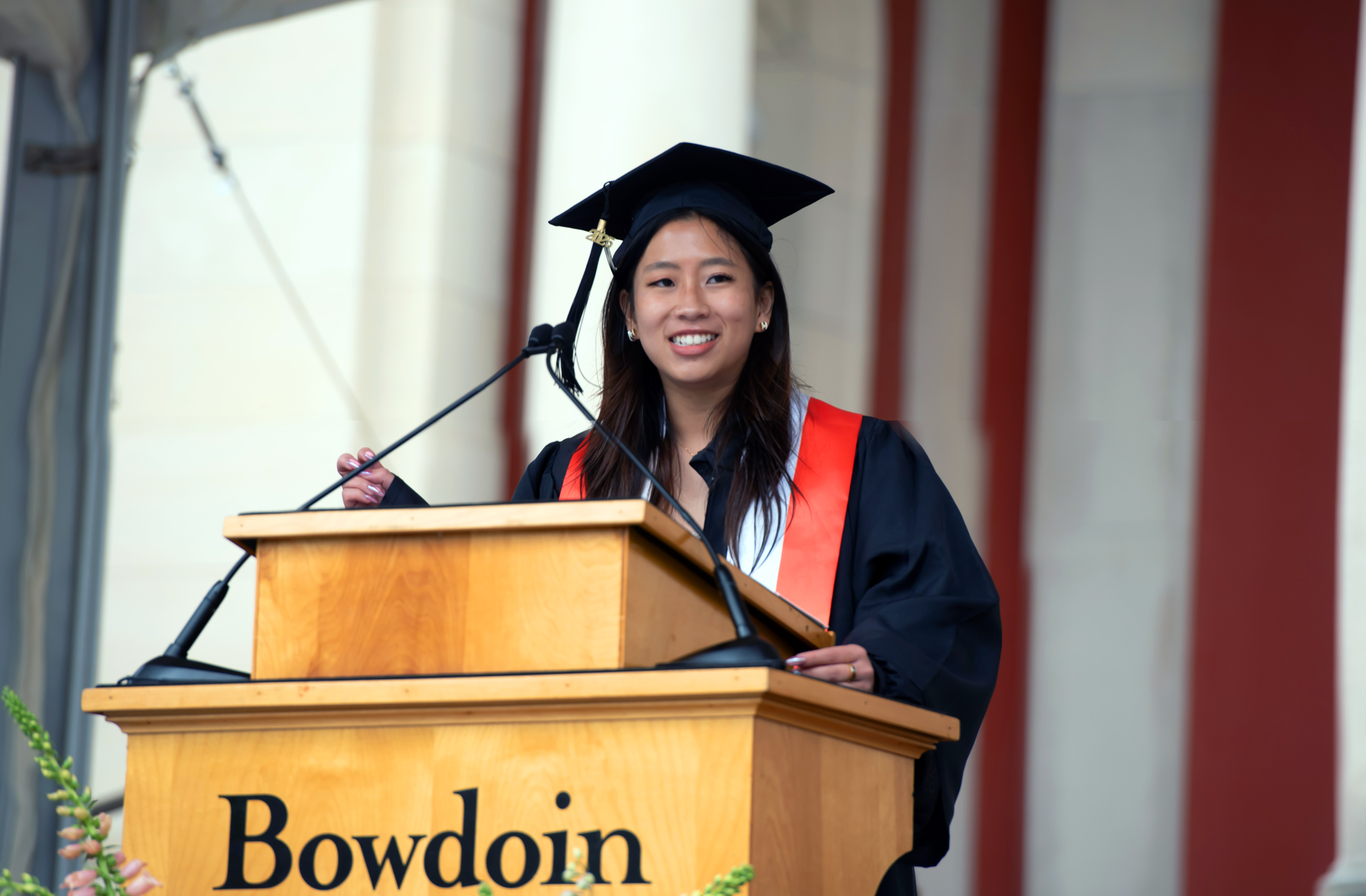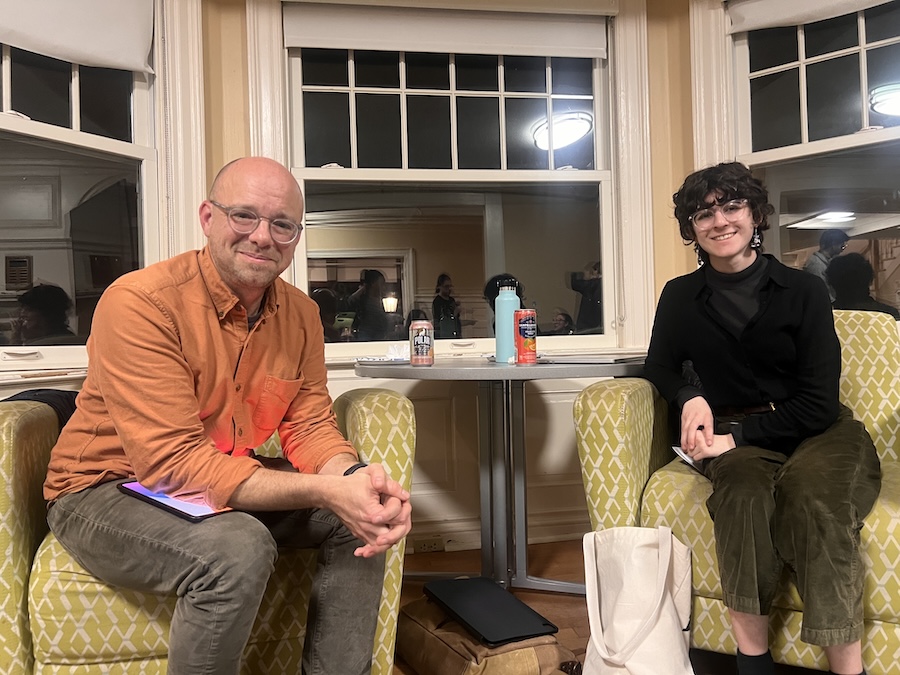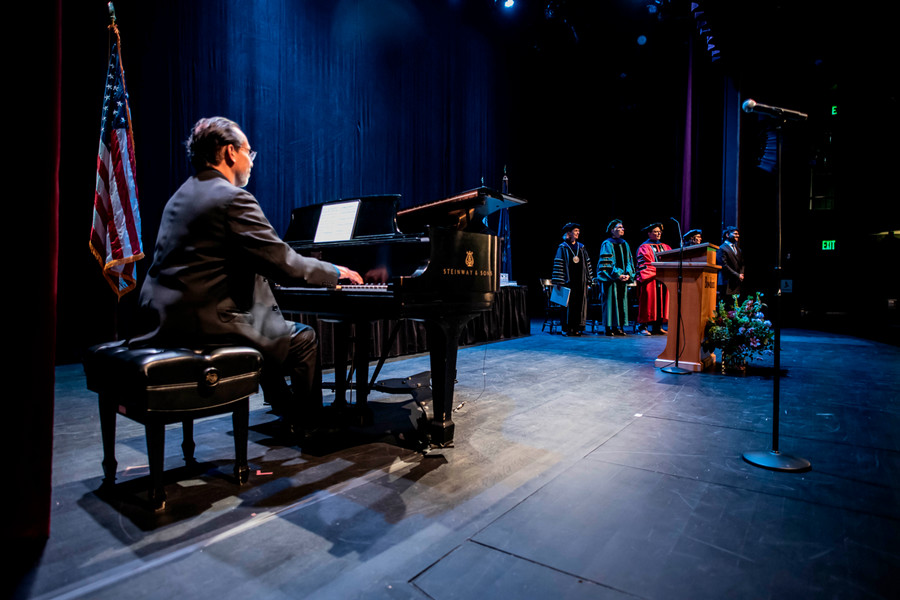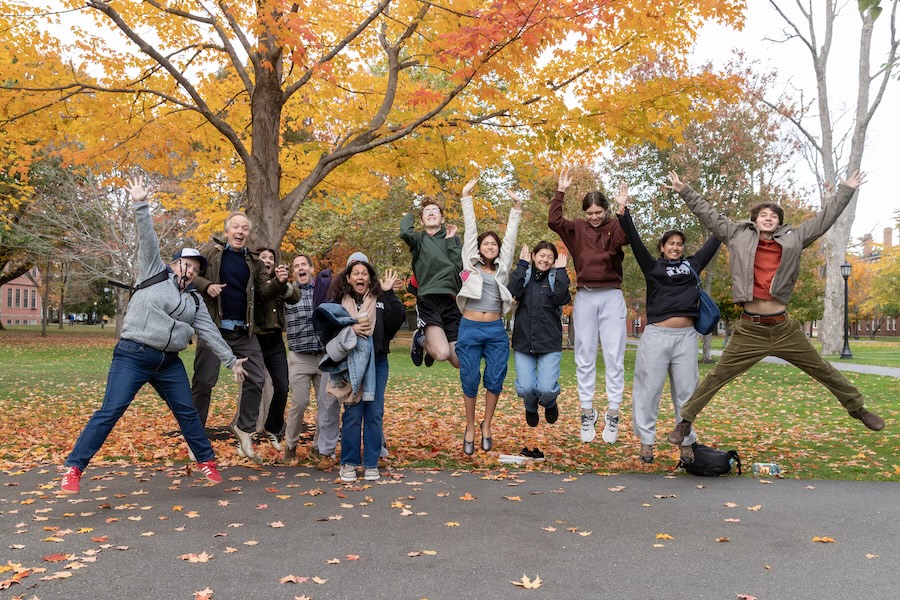Class of 1868 Prize Winner Carina Lim-Huang ’25: Commencement Address

Graduation speech: Persistent Love
President Zaki, Members of the College, and Guests, I am so glad that Tiktok isn’t banned. Bear with me for a second––I know this is an odd place to begin. But if the liberal arts have taught me anything, it is that meaning is rarely where we expect it to be. Instead, we find it in the friction between ideas, in the art of unexpected connections. So let me connect some for you.
When I arrived at Bowdoin, I imagined that college would hinge on a few, towering moments. The thrill of the first snow. The dread of the fifteenth blizzard. The satisfaction of handing in an honors thesis you definitely didn’t cram the night before. I imagined the soundtrack swelling beneath it all, as if these moments would announce: Here it is. You are becoming who you’re meant to be.
But that’s not quite what happened. As graduation approaches, I find myself clinging on—not to the grand, cinematic peaks—but to the small things. The things that pass unnoticed until you realize they’re the very structure of your life. I’ll miss the gnawing impatience of standing outside a locked bathroom door at 8:42 a.m., debating the age-old college dilemma: personal hygiene, or punctuality. I’ll miss choosing to “study” in Smith, an endeavor doomed from the start because I’m always hoping to be distracted. I’ll miss standing dinners that became sacred, kitchen conversations that became confessions, Thursday nights that bleed into Friday mornings. These are the things that will stay with me. Not because they were grand, but because they were consistent. Because they were choices until they became habits; because they were just habits, taken for granted, before they became rreplaceable.
And this—strangely enough—is where TikTok comes in. Somewhere deep in my feed—between astrology predictions and highly questionable skincare routines—I came across a video. The creator said something that lodged itself in my brain: Love, they said, is more about consistency than intensity. It stuck with me, though I never quite understood where this piece fit into my puzzle, until now. Because that’ s what I’ve been trying to name. The way this place has shaped me. Not with fireworks, but with repetition. And if love lives in the ordinary and understated, I envision that our commitment to the common good can too.
We live in a time that demands everything of us. There are crises that crack the very bones of our world—genocide, ecological collapse, injustice that spans centuries. The instinct to respond with urgency, with intensity, is natural. Sometimes, it is necessary. More often than not, it is exhausting. Audre Lorde writes of the idea that rest is resistance, that self-preservation is political warfare. Because sometimes, resistance looks different from protest or petition. Intensity sparks change, but consistency sustains it. And in a world that is asking us to burn out, choosing to keep showing up––in big and small ways––is itself an act of radical hope.
So when the fire of outrage dies down—when the march ends, when the feed refreshes—we have to ask ourselves: “What remains?” Maybe it’s this: the quiet, deliberate choice to keep showing up. Not just when it's convenient. Not just when it’s popular. But when it's mundane. When it's hard. When it's thankless. Maybe sometimes justice is less about spectacle, and more about stamina.
Speaking of spectacle–four years ago, I “picked” Bowdoin by flipping a coin. I wanted something bigger than me to decide, and I’m glad they chose well. Because what Bowdoin gave wasn’t a single spark that lit everything at once. It was a slow, steady fire—flickering in ordinary hours, catching quietly in conversation, in ritual, in rest. The kind of fire that warms you without ever asking for applause.
I got incredibly lucky, I know. But while chance set my course, choice–and persistent love–are what kept me on the path. Others have written more beautifully about this, and I find myself reaching for their words now. I think of Joan Didion: “All the pleasures of infinity are to be found in the here and now.” And I think of Ernest Hemingway: “Gradually, then suddenly.” And somehow, they both feel true.
This place has taught me that what we seek isn’t to be realized all at once—but something we build, choice by choice, moment by moment, until one day we look around and realize it’s here. Something that also finds us–something that found me at Bowdoin. Quietly, gently, and then all at once.



